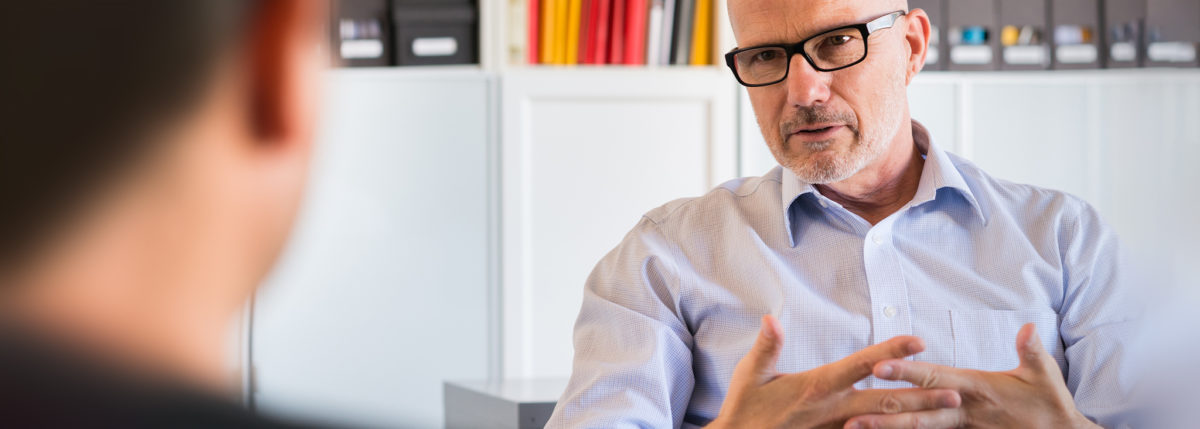A Psychologist’s Perspective: Men with Diabetes Need Mental Health Care, Too
Editor’s note: This interview has been edited for time and clarity.
 Dr. Ann Goebel-Fabbri is a clinical and health psychologist with a focus on diabetes and eating disorders in people living with diabetes. She worked at Joslin Diabetes Center for 16 years. Today, she operates a private practice in Boston, Mass.
Dr. Ann Goebel-Fabbri is a clinical and health psychologist with a focus on diabetes and eating disorders in people living with diabetes. She worked at Joslin Diabetes Center for 16 years. Today, she operates a private practice in Boston, Mass.
BT1: How can living with type 1 diabetes affect someone’s mental health and wellbeing?
Dr. Goebel-Fabbri: Diabetes is relentless, and a 24-hour a day commitment to self-care can be quite burdensome. It interacts with every sort of aspect of day-to-day life—work, family, social life, athleticism—you name it.
How do diabetes and mental health affect one another?
Diabetes tends to convey an increased risk for both depression, anxiety, eating disorders and what’s now being referred to as diabetes distress, which is sort of the emotional toll that diabetes management takes on a person.
Depression, anxiety, mental health concerns and diabetes distress are all associated with higher A1c, poorer health outcomes and harder-to-manage diabetes, but it’s hard to know which is causing which—what’s the chicken and what’s the egg?
Is there a difference in the way men and women engage with mental health care and support?
In general, women tend to be more common consumers of mental healthcare than men do. Women have higher diagnostic rates of depression and anxiety, and men have higher diagnostic rates of alcohol and substance abuse. And some people have argued that it’s possibly the same rates across the board, but the way that men are socialized in our culture makes them express it one way versus the other way.
What are the benefits of talking to a mental health professional who understands diabetes?
First and foremost, if a person with diabetes is meeting with a mental health specialist who understands diabetes, that can be a situation where their emotional responses to diabetes or the burden of diabetes are actually normalized and understood. So just that common language alone—the fluency and understanding of the ins and outs of how to manage diabetes—I think people feel very welcomed, understood and like they don’t have the burden of having to educate the mental health professional.
What role can a mental healthcare professional play in a person’s diabetes management team?
The American Diabetes Association for quite a while now has been espousing that a member of a diabetes management team ought to be a mental health professional, but even so, it’s very rare to find. It still isn’t the everyday practice of care.
Essentially, there are two parties that a mental health professional can help when included on the diabetes management team. One is the medical side, where providers often can feel quite frustrated and helpless in terms of how to appropriately reach the patient and help the patient to improve their management. Mental health professionals can help team members deal with their own burnout and worry, but we can also help get to the underside and identify the specific barriers that a particular patient might be facing.
What does this look like in practice?
I’m an eating disorder specialist. Oftentimes, my patients are taking less insulin than they should because that is a specific eating disorder symptom––a calorie purge. But plenty of people are rationing insulin for all kinds of reasons. They might be terrified of low blood sugar and feel safer at a higher-than-recommended blood sugar level. A mental health person can help get to the bottom of that and also help address that fear.
Or perhaps they’re not taking enough insulin because they’re sharing their insulin with another family member because it’s unaffordable. Or they’re not taking their insulin because they’re teenagers and it’s the best way that they’ve figured out how to rebel against their parents. Mental health professionals can hopefully open that dialogue and try to get to the nuances and identify the specific real-life barriers.
How do stigmas and other factors surrounding men, in this case with diabetes, affect their ability to get proper mental health services?
There’s this social expectation that men are supposed to be “strong” and pull themselves together and be able to handle things and all of these sorts of platitudes that people use. They’re not acknowledging that they’re human like anybody else, and of course, they have emotions. Of course, they are going to hit hurdles along the way.
I think one potentially beneficial thing that may be coming out of this pandemic is that there’s been attention to mental health needs. That has been the fallout of COVID. I think that people are starting to feel more comfortable talking about their mental health needs. And maybe that will translate into more access to care.
What role does peer support play in caring for your mental health and avoiding burnout?
I think peer support is huge. I think it’s very important! Way back when, when Elliot Joslin was first working with children with type one diabetes, he had this vision of creating a summer camp for kids with type one diabetes and giving them a chance to live like everyday kids. That was sort of like the first social support model—the peer support model. That’s really powerful.
How is working with a mental health provider uniquely beneficial to the rest of a diabetes management team?
Mental health providers have the luxury that our appointments are longer, and we get into less of the medical data and more of the barriers to improving your care. So, we have the opportunity––and the luxury really––of getting into the nitty-gritty of understanding, “Okay, the barrier, in this case, is fear of hypoglycemia,” or “The barrier, in this case, is, I’m stressed out because I’m in a bad marriage, and I have two young children and I’m the financial provider.” We have the opportunity to then go to the team and say, “Here’s what this person is actually struggling with. How do we get creative in tailoring a treatment approach that’s going to help them improve their care, and is it going to actually work within the barriers that are present in their day-to-day life right now?”
What would you say to someone who is living with diabetes who isn’t sure if they’d benefit from working with a mental health provider?
Diabetes is hard enough. Sometimes meeting with somebody who gets it is useful. This is part of the medical side of this disease––blood sugar fluctuations affect mood. So there’s something unique about diabetes that puts people at a higher risk for depression, anxiety and eating disorders. And then these things, in turn, circle back and make diabetes harder to manage.
Mental health has been talked about in really narrow terms. How could we think about it differently?
We talk about mental health, but what we really mean is mental struggling, but we either call it mental illness or mental health. And that’s so bifurcated. And what we’re really talking about is like, life is hard. And this is a discipline that helps support people in what they need to do.
Mental health tends to be a generalized term. There are many kinds of mental health challenges and concerns. Needs range in severity. If working with a professional will help to address your mental health needs, please seek out support.
Check out these resources on how to find mental health support:
- Just Diagnosed with Diabetes? Why and How to Find Mental Health Support
- The T1D Guide for Mental Health Providers
- American Diabetes Association: Mental Health Provider Directory
- How Diabetes Impacts Your Mental Health
Editor’s note: This content was made possible in part with support from Lilly, an active partner of Beyond Type 1 at the time of publication. Beyond Type 1 maintains full editorial control of all content published on our platforms.





